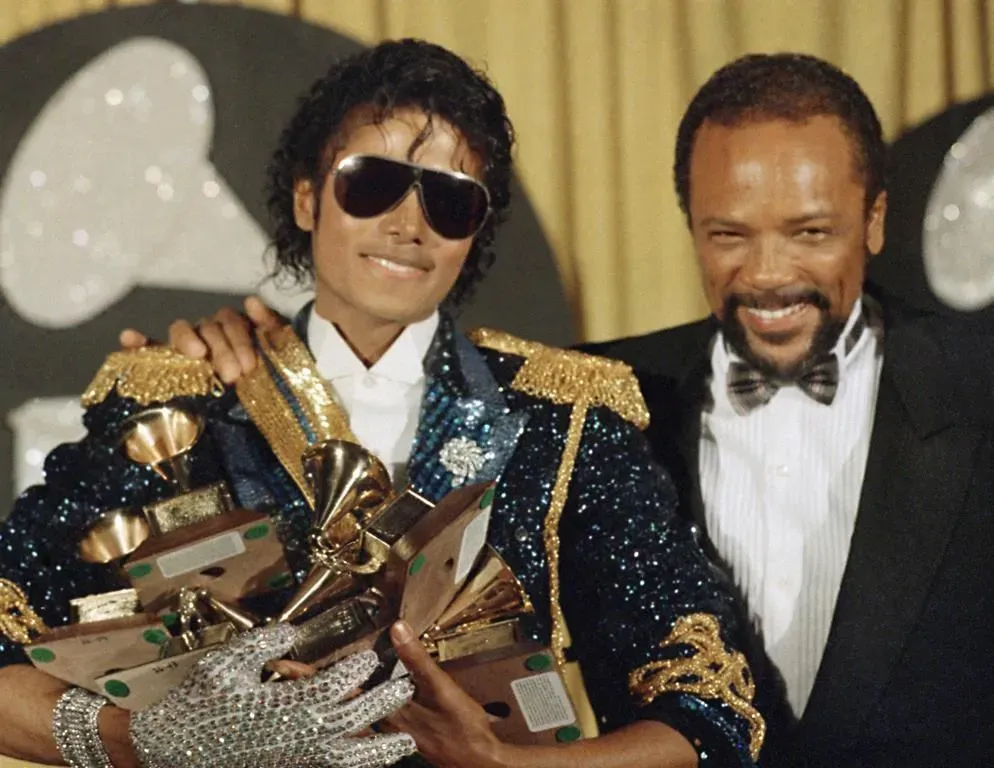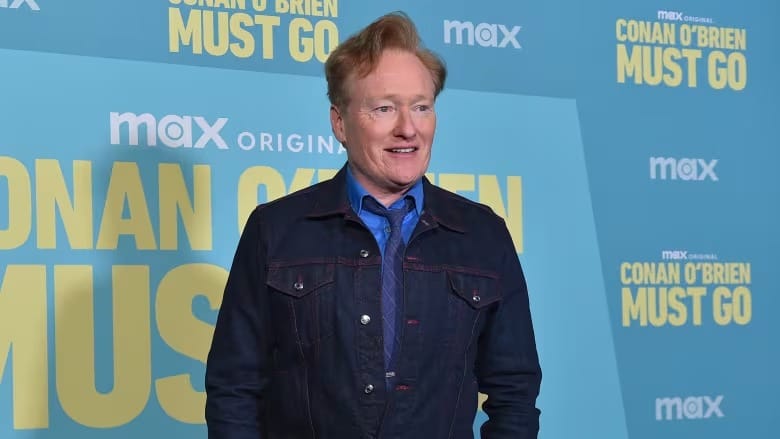Music mastermind Quincy Jones dead at 91
Jones’ publicist, Arnold Robinson, says he died Sunday night at his home in the Bel Air section of Los Angeles, surrounded by his family.

Quincy Jones, the legendary music figure whose extensive career spanned from producing Michael Jackson's iconic Thriller album to composing award-winning film and television scores, has passed away at the age of 91.
According to his publicist, Arnold Robinson, Jones died on Sunday night at his home in the Bel Air neighborhood of Los Angeles, surrounded by family.
Throughout his life, Jones mingled with presidents, foreign leaders, movie stars, and musicians. He toured with Count Basie and Lionel Hampton, arranged records for icons like Frank Sinatra and Ella Fitzgerald, composed soundtracks for Roots and In the Heat of the Night, organized President Bill Clinton’s inaugural celebration, and oversaw the all-star recording of We Are the World, the 1985 charity single aimed at famine relief in Africa.
Lionel Richie, who co-wrote We Are the World and sang on the track, referred to Jones as “the master orchestrator.”
Beginning his career during the era of vinyl records played at 78 rpm, Jones is perhaps best known for his work with Jackson. Albums such as Off the Wall, Thriller, and Bad achieved widespread acclaim. Jones' creativity and versatility were key in nurturing Jackson's transformation from a child star into the “King of Pop.” On classics like Billie Jean and Don’t Stop ‘Til You Get Enough, Jones and Jackson crafted a global sound that blended disco, funk, rock, pop, R&B, jazz, and African chants. For Thriller, Jones brought in Eddie Van Halen for a guitar solo on Beat It and featured Vincent Price's chilling voice on the title track.
In 1983 alone, Thriller sold over 20 million copies and is often cited alongside the Eagles’ Greatest Hits 1971-1975 as one of the best-selling albums in history.
“If an album doesn’t do well, everyone says ‘it was the producer's fault’; so if it does well, it should be your ‘fault,’ too,” Jones stated in a 2016 interview with the Library of Congress. “The tracks don’t just all of a sudden appear. The producer has to have the skill, experience, and ability to guide the vision to completion.”
The extensive list of Jones' accolades fills 18 pages in his 2001 autobiography, Q, including 27 Grammys (now 28), an honorary Academy Award (now two), and an Emmy for Roots. He was also awarded France’s Legion d’Honneur, the Rudolph Valentino Award from Italy, and received a Kennedy Center tribute for his contributions to American culture. In 1990, he was the subject of the documentary Listen Up: The Lives of Quincy Jones, and his daughter Rashida Jones produced a film about him in 2018. His memoir also became a bestseller.
Born in Chicago in 1933, Jones often recalled his mother's hymns as his earliest musical memories. However, he reflected on his childhood with sadness, telling Oprah Winfrey, “There are two kinds of people: those who have nurturing parents or caretakers, and those who don’t. Nothing’s in between.” His mother faced emotional challenges and was eventually institutionalized, a loss that made the world seem “senseless” to him. Much of his youth was spent on the streets of Chicago, where he encountered gangs, theft, and violence.
“They nailed my hand to a fence with a switchblade, man,” he recounted to the AP in 2018, showing a scar from his youth.
Music ultimately provided an escape. After discovering a neighbor's piano, Jones began to play it constantly. At 10, when his father moved to Washington state, he found solace at a local recreation center where he stumbled upon a stage with a piano. “I went up there, paused, stared, and then tinkled on it for a moment,” he wrote in his autobiography. “That’s where I began to find peace. I was 11. I knew this was it for me. Forever.”
By his teenage years, Jones was playing trumpet and had formed a close friendship with the blind musician Ray Charles. He earned a scholarship to Berklee College of Music in Boston but left to tour with Hampton's band. Jones then embarked on a career as a freelance composer, conductor, arranger, and producer. As a teenager, he supported Billie Holiday and by his mid-20s, he was touring with his own band.
“We had the best jazz band on the planet, and yet we were literally starving,” Jones later told Musician magazine. “That’s when I discovered that there was music, and there was the music business. If I were to survive, I would have to learn the difference between the two.”
As a music executive, he broke racial barriers, becoming a vice president at Mercury Records in the early '60s. In 1971, he made history as the first Black musical director for the Academy Awards ceremony. His first film production, The Color Purple, garnered 11 Oscar nominations in 1986, although, much to his disappointment, it did not win any. In partnership with Time Warner, he founded Quincy Jones Entertainment, which produced the pop-culture magazine Vibe and Qwest Broadcasting, sold for $270 million in 1999.
“My philosophy as a businessman has always come from the same roots as my personal credo: take talented people on their own terms and treat them fairly and with respect, no matter who they are or where they come from,” Jones wrote in his autobiography.
Jones was comfortable with virtually every genre of American music, whether creating a swinging rhythm for Sinatra’s Fly Me to the Moon or opening his production of Charles’ soulful In the Heat of the Night with a vibrant tenor sax solo. He collaborated with jazz legends (Dizzy Gillespie, Count Basie, Duke Ellington), rappers (Snoop Dogg, LL Cool J), crooners (Sinatra, Tony Bennett), pop stars (Lesley Gore), and R&B artists (Chaka Khan, Queen Latifah).
We Are the World featured a roster of performers including Michael Jackson, Bob Dylan, Billy Joel, Stevie Wonder, and Bruce Springsteen. Jones co-wrote hits for Jackson, including P.Y.T. (Pretty Young Thing), and for Donna Summer, Love Is in Control (Finger on the Trigger). His work was also sampled by Tupac Shakur, Kanye West, and others. He even wrote the theme song for the sitcom Sanford and Son.
As a facilitator of talent, Jones played a pivotal role in Will Smith’s breakthrough on the hit TV show The Fresh Prince of Bel-Air, which he produced, and he introduced Winfrey and Whoopi Goldberg to mainstream audiences through The Color Purple. Starting in the 1960s, he composed over 35 film scores, including those for The Pawnbroker, In the Heat of the Night, and In Cold Blood.
He described scoring as “a multifaceted process, an abstract combination of science and soul.”
Jones' collaboration with Jackson began with the soundtrack for The Wiz, in which Jackson starred. In a Time magazine essay published after Jackson's death in 2009, Jones recalled how Jackson carried slips of paper with thoughts from famous thinkers. When Jones inquired about one passage, Jackson replied “Socrates,” mispronouncing it “SO-crayts.” Jones corrected him, “Michael, it’s SOCK-ra-tees.”
Jones remembered being impressed by Jackson's talent during rehearsals, prompting him to say, “I would love to take a shot at producing your album.” Jackson conveyed this to Epic Records, but they initially opposed, stating, “Quincy’s too jazzy.” Nevertheless, Jackson persisted, and they went on to produce Off the Wall. Ironically, it became one of the best-selling albums by a Black artist at the time, saving the jobs of those who had doubted Jones.
After Jackson's death, tensions arose; in 2013, Jones sued Jackson’s estate, claiming he was owed millions in royalties and production fees for some of the superstar’s biggest hits. In a 2018 interview with New York magazine, he described Jackson as “as Machiavellian as they come” and accused him of borrowing from others.
Jones was dedicated to his work, sometimes at a cost to his well-being. He nearly died from a brain aneurysm in 1974 and experienced significant depression in the 1980s after The Color Purple was overlooked by the Academy Awards; he never received a competitive Oscar. A father of seven children from five mothers, Jones admitted to being a “dog” who had many lovers worldwide. He was married three times, including to actress Peggy Lipton.
“To me, loving a woman is one of the most natural, blissful, life-enhancing — and dare I say, religious — acts in the world,” he expressed.
Initially, he was not an activist, but that changed after attending Rev. Martin Luther King Jr.'s funeral in 1968 and befriending Rev. Jesse Jackson. Jones became committed to philanthropy, stating, “the best and only useful aspect of fame and celebrity is having a platform to help others.”
His charitable efforts included combating HIV and AIDS, educating children, and supporting the impoverished globally. He founded the Quincy Jones Listen Up! Foundation to connect youth with music, culture, and technology, driven by “a spirit of adventure and a criminal level of optimism.”
“Life is like a dream, the Spanish poet and philosopher Federico Garcia Lorca said,” Jones reflected in his memoir. “Mine’s been in Technicolor, with full Dolby sound through THX amplification before they knew what these systems were.”
Jones is survived by his daughters Rashida, Jolie Jones Levine, Rachel, Martina, Kidada, and Kenya Kinski-Jones; son Quincy Jones III; brother Richard Jones





